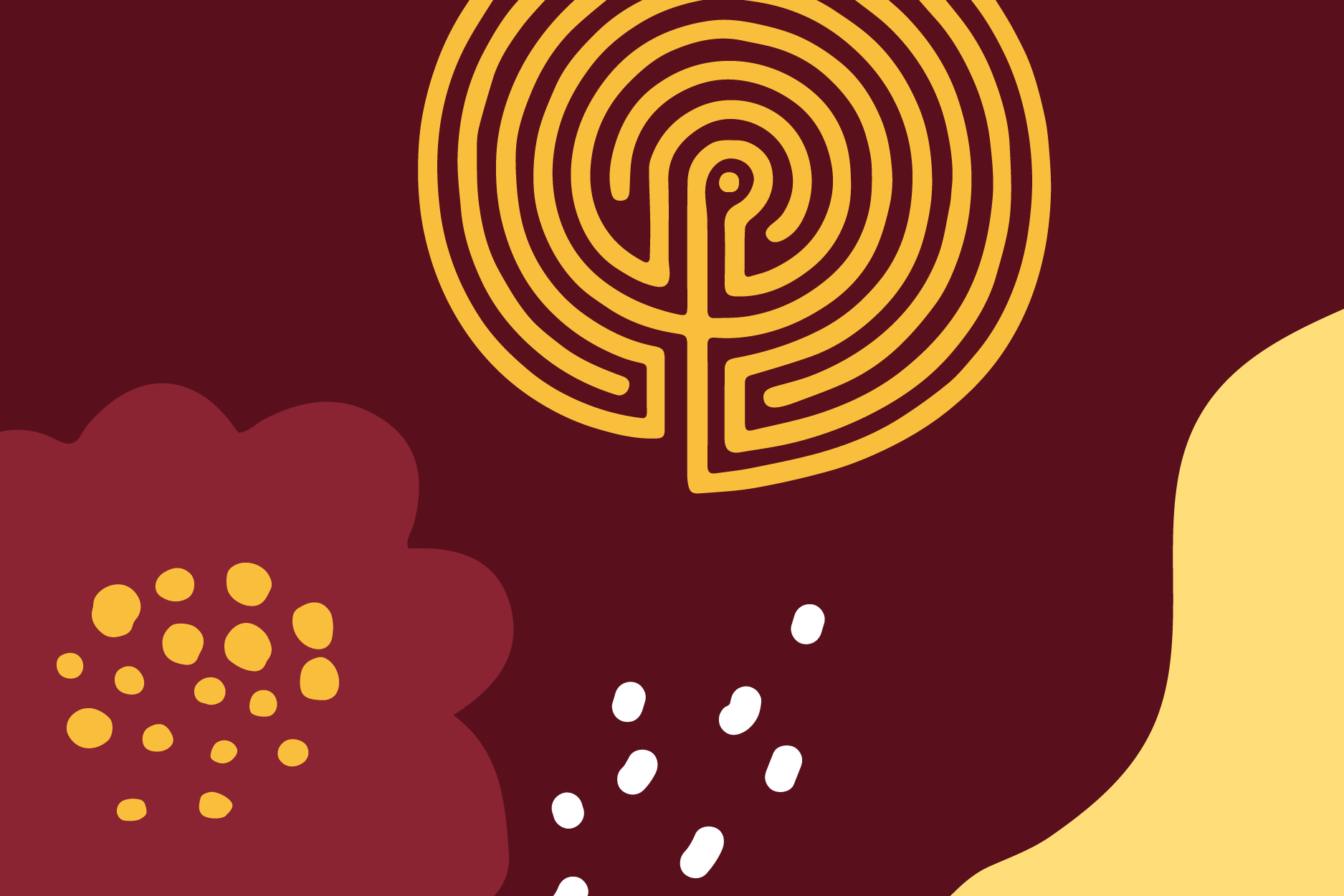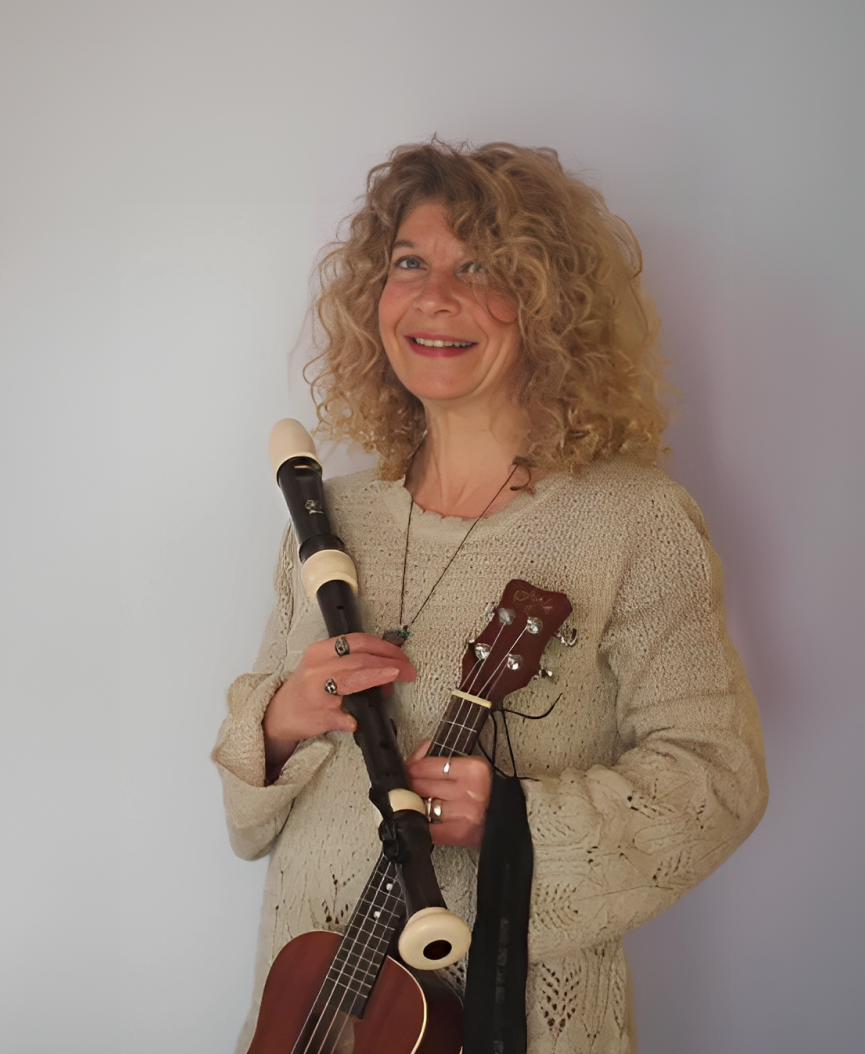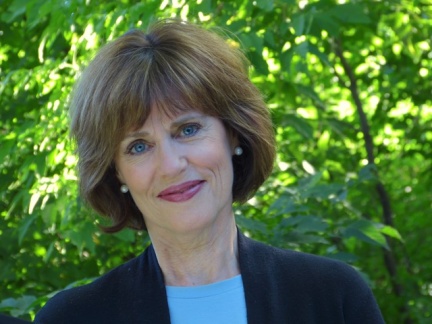The Magic of Music
Science supports it: Collective art can heal. Here’s one way in which the Minnesota Orchestra and the Bakken Center are bringing it to the Twin Cities.
January 2, 2024
Katie Dohman
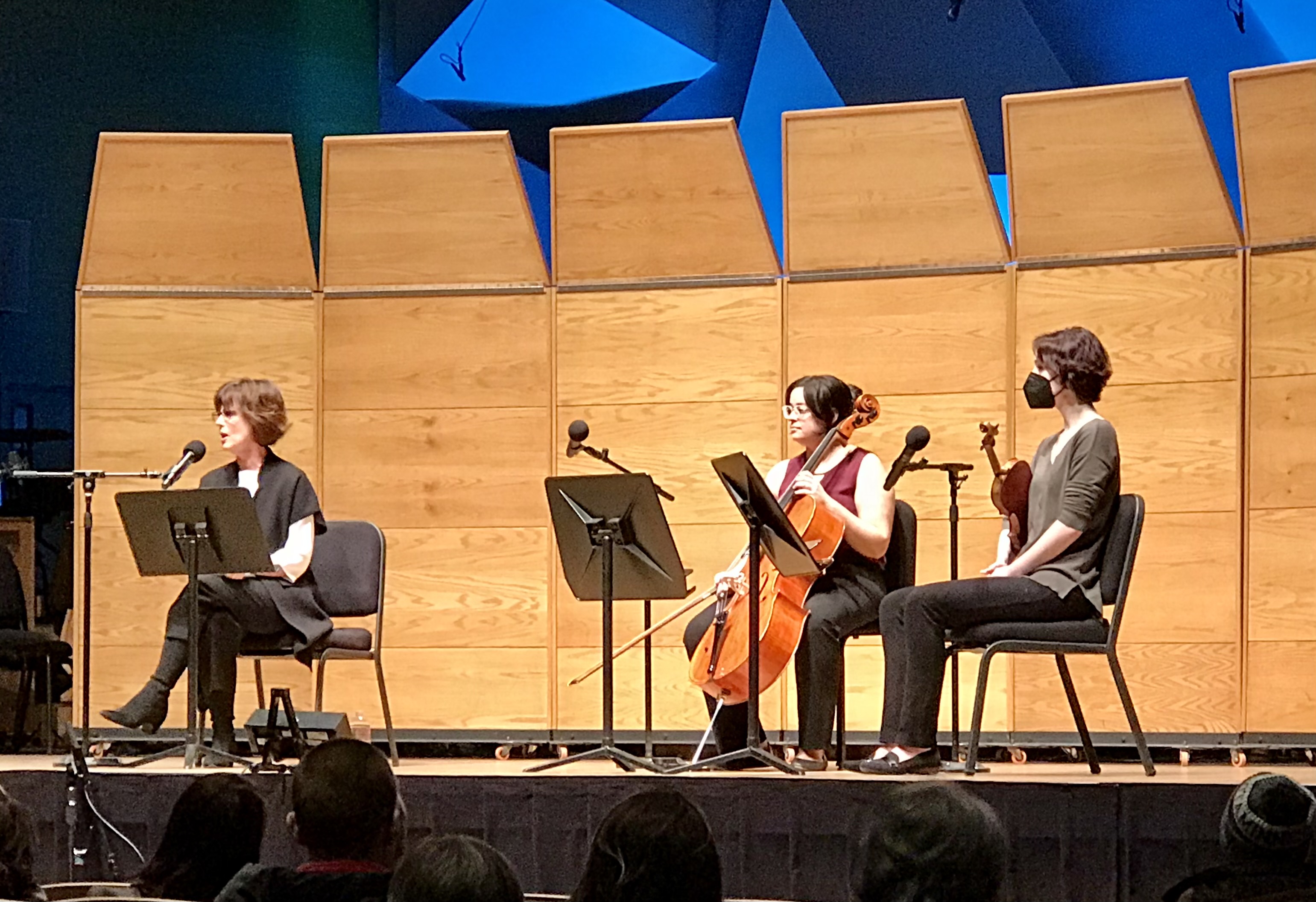
Music and Mental Health Collaboration
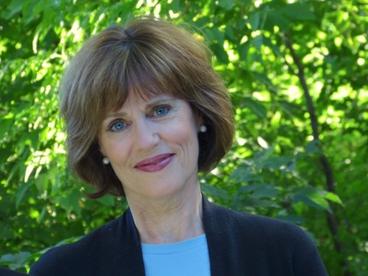
“Music is a universal healer, a balm,” says Mariann Johnson, Mindfulness and Wellbeing Instructor at the Bakken Center. “Likewise, mindfulness is an innate capacity. Given the challenges and complexity of the world these days, it’s helpful to remember that we have this capacity to slow things down a bit and to come home to who we are; to our being, nature, and to the universality of that as well. When you combine this innate capacity—to be fully present and connected to the unfolding of our daily lives — with our shared humanity and listening to music, it can be really powerful.”
Sue Nankivell, Director of Business Development and Community Relations at the Bakken Center, was first approached by the Orchestra to kick off the partnership in 2018. The Center and the Orchestra have collaborated on an intimate Mindfulness and Music series each year since. This year, the collaboration expanded further, culminating in a full Orchestra concert collaboration this summer and an upcoming series of digital programming.
Grant Meachum, Director of Live at Orchestra Hall, says it was a “natural fit for their programmatic and personal interests.” It started with Ashleigh Rowe, Director of Broadcasts and Digital Initiatives, who led a discussion of how the Orchestra can best use its digital resources to create interesting and mission-driven projects. “The idea of mental health and music’s role in healing rose to the top of these discussions,” Meachum says. Rowe adds the Minnesota Orchestra prioritizes music’s role in mental health, going so far as to write it into the strategic plan to “Reach and Resonate,” which explicitly lays out providing opportunities to enhance health and wellbeing through music by partnering with experts for in-person and digital experiences.
With this year’s collaboration, Nankivell says, “We’re really talking about a unique level of vulnerability here. We know we’re talking about anxiety and music and mental health, and that’s really powerful coming out of the pandemic. If we didn’t want to talk about mental health before - and we knew it was an important and big issue then - we really don’t have much of a choice but to start looking at it more directly societally now.” And she says she too believes in the power of music to heal. “We are gently introducing people to the mind-body connection, an important aspect of whole-person wellbeing, and we’re doing this in a shared experience. Ultimately we are all connected with each other, our bodies and minds and hearts as one whole. I think that’s something some people maybe struggle with conceptually, but it can really come to life during a powerful shared experience.
Music and Mindfulness
At the beginning of the Orchestra collaboration, in 2018, Johnson took charge designing and leading the ongoing Music and Mindfulness series programming when she arrived at the Bakken Center and was given the seed of this idea: It was up to her to help it fully bloom. Since then, the program has set deep roots of partnership and collaboration with the Minnesota Orchestra, among others, and has widened not only the audiences for both entities, but also broadened the minds and hearts of its own participants, too.
Research shows people connect over sharing music communally; it’s likely why it’s been a cultural connector for thousands of years, through joy, pain, sorrow, rituals, milestones, and more. Often, Johnson says, music has an ability to connect us to emotions that words can’t quite touch. One of those is awe, which was among the featured concepts this past year.
For the program on Awe, Johnson used the teachings of Dacher Keltner from The Greater Good Science Center at the University of California, Berkeley, who wrote Awe: The New Science of Everyday Wonder and How It Can Transform your Life. In his book, he illuminates expressions of awe, including an experience he’s coined as “collective effervescence.”
“When we come together to experience music in a shared way, there’s almost a palpable energy in the room,” she explains. “When musicians have performed a particularly emotive piece have you ever noticed the stillness or sacredness of the audience? Then you know exactly what it means when he calls it collective effervescence.”
While Schaefer and pianist Mary Jo Gothmann knew Johnson was going to speak on the intersection of awe, music and mindfulness, they were surprised by the "happy synchronicity" of how well the piece they had selected - Lauridesen's "O Magnum Mysterium (O Great Mystery)" - fit with the evening's theme. As musicians, they were also delighted and deeply touched by the audience's enthusiastic response to their performance.
“We could sense the shared experience of awe in that moment,” she says. Johnson felt it too: As the final notes rang out, she could not immediately bring herself to kick into host mode. “I just sat there because I was in the same field of experience of collective effervescence as everybody in that room. I stood and looked at all of them and I didn’t say a word. After about a minute I said, ‘I think what we have all experienced is mindfully experiencing collective effervescence,’ and the whole audience let out a sigh. It was exquisite, and they felt it. We didn’t have to explain what it meant. Many people stayed after, even late at night, to share their experiences because it was meaningful to them.” Schaefer says she felt it, too. “It’s great to see studies showing synchronized brain activity between audience members and performers and hear similar research results on mindfulness from the Bakken Center,” she says. “It confirms what we’ve experienced...that shared live music can help us be more empathetic human beings.”
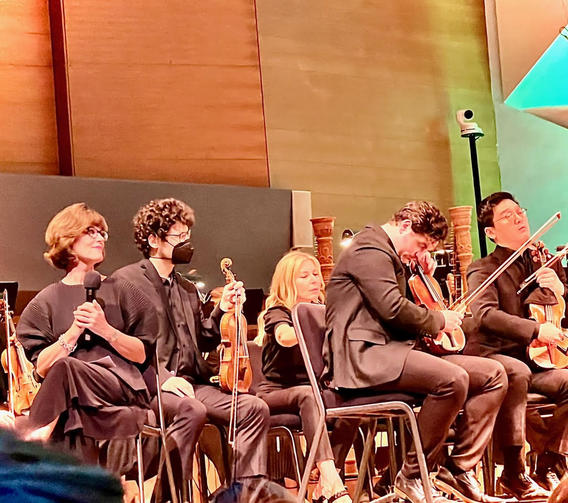
“How fortunate we are to have the MN Orchestra in our community. They’re not afraid to take on really important issues and see that as their role in the community,” Johnson says. “To use their platform to promote discussion about mental health issues and do what they can to promote community healing is exemplary.
The experience—all these experiences—have been meaningful, and continue to be. Johnson says,“Every single time I am on stage at the MN Orchestra I go into a reverie, watching the [musicians] and their skill and the excellence with which they play. Knowing their training and skill, but also how alive and vital and in the moment they are while they’re playing. They embody mindfulness, and I get to be with them in real time, right there.”
The events follow a basic formula: Attendees get a bit of background on mindfulness and the evening’s theme, followed by a guided meditation from Johnson. Then they get to practice listening to music mindfully with the live orchestra musicians. Afterward, they often get up close and personal with the musicians, and can share their experiences and feedback—a perspective most Orchestra attendees never get.
Attendee Dr. Bernice Folz is an enthusiastic participant. “The music of a people is a reflection of their mind and helps create a more human world,” Folz says. “The beauty of music is that it heals by calming our nerves thereby adopting a loving and compassionate attitude as a feeling of selflessness and a way of being instead of doing. Music is one of the most important ways to activate almost all brain regions and networks and keep them strong to help us in healing, resulting in improved wellbeing, cognitive functionality, learning, happiness, concentration, and can decrease pain.”
“What a privilege it is to work in this space,” says Nankivell. “We’re helping to heal our community and bring people together through the power of mindfulness and music.”
